Is the DeepSeek hype justified? - The market’s reaction to the latest news surrounding DeepSeek is nothing short of an overcorrection
The market’s reaction to the latest news surrounding DeepSeek is nothing short of an overcorrection

Skepticism Around DeepSeek’s Claims
DeepSeek’s assertions about its advancements have drawn significant attention, but much of it remains unverified. For a technology that allegedly leapfrogs existing capabilities, the specifics around its breakthroughs are conspicuously lacking. Transparency has always been a cornerstone for evaluating cutting-edge technologies, and until DeepSeek provides more concrete evidence, skepticism is not just warranted—it’s necessary.
Chips on the Table: Do They Have More Than We Think?
One of the most puzzling aspects of the DeepSeek story is the apparent discrepancy between the resources they claim to have and those they might actually possess. Analysts are increasingly suspicious that DeepSeek may have access to far more hardware—particularly high-performance chips—than has been publicly disclosed. If true, this could have significant implications for their capacity to train and deploy their models at scale, raising questions about how they’ve managed to secure such resources.
The Training Puzzle: Costs and Methodology
Another critical angle here is the cost and methodology behind training their purportedly groundbreaking model. Training large language models (LLMs) is notoriously expensive and resource-intensive, often running into tens or even hundreds of millions of dollars. How did DeepSeek manage to foot this bill, especially given their previously disclosed financials? Additionally, there’s an elephant in the room: Did they rely on other LLMs during training? This would raise ethical and competitive concerns, as it has long been recognized as a controversial practice in the AI community. Leveraging other providers’ models for training—potentially without permission—distorts fair competition and undermines trust in the ecosystem.
Overreaction vs. Reality
The broader market response underscores the dangers of overreaction. While innovation in AI tools is undeniably exciting, we’ve seen time and again how unverified claims can lead to speculative bubbles. For investors, this is a moment to pause, ask questions, and demand clarity before assigning sky-high valuations to unproven technologies.
In summary, while Deepseek’s story is intriguing, it’s imperative to separate fact from speculation. The market needs to temper its enthusiasm and demand more transparency before awarding DeepSeek the crown of AI innovation. Until then, skepticism remains a healthy and necessary stance.
China: Travel for Uyghurs Heavily Restricted To Control Xinjiang Population, Human Rights Watch Says
The Chinese government is maintaining severe restrictions, conditions, and controls on Uyghurs who seek to travel abroad in violation of their internationally protected right to leave the country.
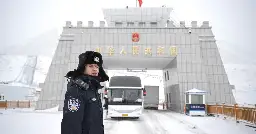
cross-posted from: https://scribe.disroot.org/post/1873878
> The Chinese government is maintaining severe restrictions, conditions, and controls on Uyghurs who seek to travel abroad in violation of their internationally protected right to leave the country, Human Right Watch said today. The government has permitted Uyghurs in the diaspora to make restricted visits to Xinjiang, but with the apparent aim of presenting a public image of normalcy in the region. > > Since the start of the Chinese government’s abusive Strike Hard Campaign in the Xinjiang Uyghur Autonomous Region in 2016, Chinese authorities have arbitrarily confiscated passports of Uyghurs in the region and imprisoned Uyghurs for contacting people abroad. While the authorities are now allowing some Uyghurs to apply for or are returning passports for travel internationally, they exert tight control over those who travel. > > “The modest thaw in China’s travel restrictions has allowed some Uyghurs to briefly reunite with loved ones abroad after having no news for years, but the Chinese government’s travel restrictions are still used to oppress Uyghurs in Xinjiang and in the diaspora,” said Yalkun Uluyol, China researcher at Human Rights Watch. “The Chinese government continues to deny Uyghurs their right to leave the country, restrict their speech and associations when abroad, and punish them for having foreign ties.” > > ...
China: Travel for Uyghurs Heavily Restricted To Control Xinjiang Population, Human Rights Watch Says
The Chinese government is maintaining severe restrictions, conditions, and controls on Uyghurs who seek to travel abroad in violation of their internationally protected right to leave the country.
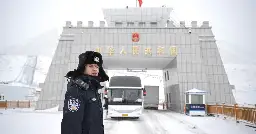
The Chinese government is maintaining severe restrictions, conditions, and controls on Uyghurs who seek to travel abroad in violation of their internationally protected right to leave the country, Human Right Watch said today. The government has permitted Uyghurs in the diaspora to make restricted visits to Xinjiang, but with the apparent aim of presenting a public image of normalcy in the region.
Since the start of the Chinese government’s abusive Strike Hard Campaign in the Xinjiang Uyghur Autonomous Region in 2016, Chinese authorities have arbitrarily confiscated passports of Uyghurs in the region and imprisoned Uyghurs for contacting people abroad. While the authorities are now allowing some Uyghurs to apply for or are returning passports for travel internationally, they exert tight control over those who travel.
“The modest thaw in China’s travel restrictions has allowed some Uyghurs to briefly reunite with loved ones abroad after having no news for years, but the Chinese government’s travel restrictions are still used to oppress Uyghurs in Xinjiang and in the diaspora,” said Yalkun Uluyol, China researcher at Human Rights Watch. “The Chinese government continues to deny Uyghurs their right to leave the country, restrict their speech and associations when abroad, and punish them for having foreign ties.”
...
Staff Used The Bathroom Too Long: Chinese Firm Sparks Outrage For Photographing And Shaming Workers Using Toilets
As the controversy snowballed, the company said it had taken down the photos a few hours later because "they do not look good".
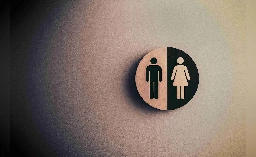
cross-posted from: https://scribe.disroot.org/post/1868112
> A Chinese company is facing backlash after it sent staff members to photograph other employees using the toilet and later posting the compromising images on the wall of the restroom. Shenzen-based Lixun Electro-Acoustic admitted it was creepily monitoring the employees, whilst explaining the rationale behind its decision, according to a report in South China Morning Post. > > The company said it undertook the surveillance to warn employees against using the bathroom for too long with few spending time smoking while others played video games. > > "The staff were spending too much time in the bathroom smoking or playing games, which made other staff uncomfortable," the company said. > > "Smoking in the bathroom is prohibited and the purpose is to prevent people from staying in the bathroom for long periods of time due to video games and other activities." > > Notably, when the worker would not open the bathroom door for long, the other staffer would stand on the ladder and use the phone to click the pictures. > > As the controversy snowballed, the company said it had taken down the photos a few hours later because "they do not look good". > > ...
Staff Used The Bathroom Too Long: Chinese Firm Sparks Outrage For Photographing And Shaming Workers Using Toilets
As the controversy snowballed, the company said it had taken down the photos a few hours later because "they do not look good".
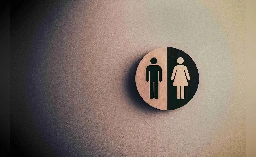
A Chinese company is facing backlash after it sent staff members to photograph other employees using the toilet and later posting the compromising images on the wall of the restroom. Shenzen-based Lixun Electro-Acoustic admitted it was creepily monitoring the employees, whilst explaining the rationale behind its decision, according to a report in South China Morning Post.
The company said it undertook the surveillance to warn employees against using the bathroom for too long with few spending time smoking while others played video games.
"The staff were spending too much time in the bathroom smoking or playing games, which made other staff uncomfortable," the company said.
"Smoking in the bathroom is prohibited and the purpose is to prevent people from staying in the bathroom for long periods of time due to video games and other activities."
Notably, when the worker would not open the bathroom door for long, the other staffer would stand on the ladder and use the phone to click the pictures.
As the controversy snowballed, the company said it had taken down the photos a few hours later because "they do not look good".
...
Algorithmic manipulation? TikTok use predicts positive views of China’s human rights record
New research shows TikTok users encounter less content critical of China and more content aligned with pro-CCP narratives compared to other platforms. Heavy TikTok users also report more favorable views of China’s human rights record.
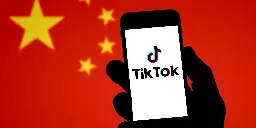
cross-posted from: https://scribe.disroot.org/post/1867860
> Archived > > A new study published in Frontiers in Social Psychology suggests that the popular social media platform TikTok may be manipulated to conceal content critical of the Chinese government while amplifying narratives aligned with the Chinese Communist Party (CCP). The research, which involved three separate studies, found that TikTok users were exposed to significantly less content critical of China compared to users of other platforms like Instagram and YouTube. Additionally, the study found that heavier TikTok users tended to have more positive views of China’s human rights record and were more likely to consider China a desirable travel destination. > > Authoritarian regimes such as those in Russia and Iran have increasingly used social media to manipulate information and advance their strategic interests. China, in particular, has developed sophisticated strategies to control narratives and influence public opinion through digital platforms. This phenomenon, often referred to as “networked authoritarianism,” involves state actors using subtle tactics like algorithmic manipulation and strategic content curation to shape narratives on popular social media platforms. > > These tactics are particularly effective because they are often invisible to users, making overt censorship or manipulation difficult to detect. Given that TikTok is owned by the Chinese company ByteDance, concerns have been raised that it may be susceptible to influence from the CCP, either directly or through algorithmic adjustments. The study aimed to assess whether TikTok’s content curation patterns differed from those of other social media platforms and, if so, whether these differences aligned with Chinese government interests. > > “China is a communist country. The CCP has a vast propaganda apparatus and a long record of enforcing conformity to its preferences,” said study author Lee Jussim, a distinguished professor of psychology at Rutgers University and author of The Poisoning of the American Mind. “Many before us have raised concerns about whether the CCP exerts undue influence on TikTok to further its goals. We decided to empirically assess whether this was the case regarding issues about which the CCP was likely to be sensitive.” > > ...
Algorithmic manipulation? TikTok use predicts positive views of China’s human rights record
New research shows TikTok users encounter less content critical of China and more content aligned with pro-CCP narratives compared to other platforms. Heavy TikTok users also report more favorable views of China’s human rights record.

A new study published in Frontiers in Social Psychology suggests that the popular social media platform TikTok may be manipulated to conceal content critical of the Chinese government while amplifying narratives aligned with the Chinese Communist Party (CCP). The research, which involved three separate studies, found that TikTok users were exposed to significantly less content critical of China compared to users of other platforms like Instagram and YouTube. Additionally, the study found that heavier TikTok users tended to have more positive views of China’s human rights record and were more likely to consider China a desirable travel destination.
Authoritarian regimes such as those in Russia and Iran have increasingly used social media to manipulate information and advance their strategic interests. China, in particular, has developed sophisticated strategies to control narratives and influence public opinion through digital platforms. This phenomenon, often referred to as “networked authoritarianism,” involves state actors using subtle tactics like algorithmic manipulation and strategic content curation to shape narratives on popular social media platforms.
These tactics are particularly effective because they are often invisible to users, making overt censorship or manipulation difficult to detect. Given that TikTok is owned by the Chinese company ByteDance, concerns have been raised that it may be susceptible to influence from the CCP, either directly or through algorithmic adjustments. The study aimed to assess whether TikTok’s content curation patterns differed from those of other social media platforms and, if so, whether these differences aligned with Chinese government interests.
“China is a communist country. The CCP has a vast propaganda apparatus and a long record of enforcing conformity to its preferences,” said study author Lee Jussim, a distinguished professor of psychology at Rutgers University and author of The Poisoning of the American Mind. “Many before us have raised concerns about whether the CCP exerts undue influence on TikTok to further its goals. We decided to empirically assess whether this was the case regarding issues about which the CCP was likely to be sensitive.”
...
Yes, what makes this even worse is that modern slavery is also a big issue in the self-defined 'socialist' countries like China.
DeepSeek Data Breach Of One Million Records Exposes AI Security Vulnerabilities
The rapid adoption of artificial intelligence (AI) across industries has introduced new security risks, as highlighted by the recent DeepSeek data breach.

Cyber Threat Radar – The rapid adoption of artificial intelligence (AI) across industries has introduced new security risks, as highlighted by the recent DeepSeek data breach.
Chinese AI startup DeepSeek left over a million sensitive records exposed due to an unsecured ClickHouse database, raising concerns about cybersecurity practices within AI-driven enterprises.
While DeepSeek quickly secured the database within an hour of being alerted, the incident underscores the growing data protection challenges that accompany AI advancements. As global regulators investigate, the breach serves as a cautionary tale for organizations integrating AI technologies.
...
Deepseek is welcome in Europe as all others, as long as it complies with EU's GDPR and the law: A quick reminder that Deepseek is being probed so far in Italy (where it's prohibited), in France, and Ireland. We'll see whether other countries follow.
The idea of slavery in modern times is a foreign concept for most Westerners. Of course, the Black Lives Matter movement was built on the continuing

cross-posted from: https://scribe.disroot.org/post/1866754
> Archived > > According to the Global Slavery Index (2023), over 50 million people are forced to live in conditions of modern slavery. > > India, China, Pakistan, Bangladesh, and Indonesia have high numbers of people forced into modern slavery, mainly due to the large populations and economic disparities in these countries. > > Much of the modern slavery there occurs in industries such as textiles, agriculture, manufacturing, and construction. For example, garment factories and brick kilns are known to exploit workers, forcing them to work long hours for low pay. > > ...
The idea of slavery in modern times is a foreign concept for most Westerners. Of course, the Black Lives Matter movement was built on the continuing

cross-posted from: https://scribe.disroot.org/post/1866754
> Archived > > According to the Global Slavery Index (2023), over 50 million people are forced to live in conditions of modern slavery. > > India, China, Pakistan, Bangladesh, and Indonesia have high numbers of people forced into modern slavery, mainly due to the large populations and economic disparities in these countries. > > Much of the modern slavery there occurs in industries such as textiles, agriculture, manufacturing, and construction. For example, garment factories and brick kilns are known to exploit workers, forcing them to work long hours for low pay. > > ...
The idea of slavery in modern times is a foreign concept for most Westerners. Of course, the Black Lives Matter movement was built on the continuing

According to the Global Slavery Index (2023), over 50 million people are forced to live in conditions of modern slavery.
India, China, Pakistan, Bangladesh, and Indonesia have high numbers of people forced into modern slavery, mainly due to the large populations and economic disparities in these countries.
Much of the modern slavery there occurs in industries such as textiles, agriculture, manufacturing, and construction. For example, garment factories and brick kilns are known to exploit workers, forcing them to work long hours for low pay.
...
Taiwan says government departments should not use DeepSeek, citing security concerns
cross-posted from: https://scribe.disroot.org/post/1866695
> Taiwan's digital ministry said on Friday that government departments should not use Chinese startup DeepSeek's artificial intelligence (AI) service, saying that as the product is from China it represents a security concern. > > Democratically-governed Taiwan has long been wary of Chinese tech given Beijing's sovereignty claims over the island and its military and political threats against the government in Taipei. > > In a statement, Taiwan's Ministry of Digital Affairs said that government departments are not allowed to use DeepSeek's AI service to "prevent information security risks". > > "DeepSeek's AI service is a Chinese product, and its operation involves cross-border transmission and information leakage and other information security concerns, and is a product that jeopardises the country's information security," the ministry said. > > ...
Taiwan says government departments should not use DeepSeek, citing security concerns
Taiwan's digital ministry said on Friday that government departments should not use Chinese startup DeepSeek's artificial intelligence (AI) service, saying that as the product is from China it represents a security concern.
Democratically-governed Taiwan has long been wary of Chinese tech given Beijing's sovereignty claims over the island and its military and political threats against the government in Taipei.
In a statement, Taiwan's Ministry of Digital Affairs said that government departments are not allowed to use DeepSeek's AI service to "prevent information security risks".
"DeepSeek's AI service is a Chinese product, and its operation involves cross-border transmission and information leakage and other information security concerns, and is a product that jeopardises the country's information security," the ministry said.
...
There should be a solution to this once they both agree on mutual independence.
with claim to all China's territory.
What does that mean? Taiwan doesn't claim 'all of China's territory' ...
Yes, the Vatican is also silent on China's supression of religious groups, including catholics.
'There is no longer a safe place to be a Christian in China' - report
The Chinese government is increasingly cracking down on state-sanctioned churches as well as underground churches, leaving no "safe place" for Christians, according to International Christian Concern.
A new report by ICC tracks persecution of Christians in China since July 2021 and records 32 cases of arrests and detainments, five raids on Christian schools, and 20 cases of the Sinicization of churches - where churches are forced to align their faith with the social and political messaging of the Chinese Communist Party (CCP).
The ICC said that exact numbers were likely to be far higher because of the challenges of receiving information from China.
I personally believe this is some sort of political rhetoric. Marcos knows well that China won't stop its aggression.
"Pulling children into the system:' The Kremlin is bringing its patriotic lesson series to Russia’s youngest students — kindergartners
The fall after the Kremlin launched its full-scale war against Ukraine, schools across Russia introduced a new state-designed “patriotic” lesson series called “Important Conversations.” Now, the program is expanding to some of the youngest members of society — kindergartners. Officials in the Vologd...
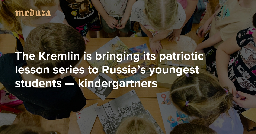
Cross posted from: https://scribe.disroot.org/post/1860608
The fall after the Kremlin launched its full-scale war against Ukraine, schools across Russia introduced a new state-designed “patriotic” lesson series called “Important Conversations.” Now, the program is expanding to some of the youngest members of society — kindergartners. Officials in the Vologda region are piloting the new initiative. At some of the first lessons, teachers dressed children in uniforms, gave them toy guns, pretended to bandage their arms, led a moment of silence, and played patriotic music.
...
In October 2024, President Vladimir Putin met with Russian educators, including Nadezhda Vorontsova, a kindergarten teacher from Vologda and a finalist in the “Teacher of the Year” competition. It was Vorontsova who suggested expanding “Important Conversations” to kindergarten. Putin supported the idea.
Vorontsova has now been appointed to lead the project in Vologda. At the kindergarten where she works, the first session, called “What Do I Know About the War?” took place on January 20. According to the kindergarten’s social media page, the goal was to “instill a sense of moral appreciation for our country’s heroic past by exploring how older preschoolers understand the Great Patriotic War [World War II].”
...
For now, the program is set to run until May 19. Lessons will take the form of “discussions, role-playing games, quizzes, interviews, and rapid-fire Q&A sessions.” Children will learn about World War II heroes, military professions, hero cities, war memorials, and medals. Kindergartens will also set up patriotic displays.
...
Officially, Russia’s Education Ministry is still considering whether to expand its patriotism program to kindergartens, with final recommendations set to be presented to Putin on March 1. But in many regions, local officials aren’t waiting — kindergartens have already begun holding their own “Important Conversations” sessions on the initiative of regional administrations.
“[...] We’ve seen a huge number of similar lessons in other regions — Murmansk, Rostov, Kaliningrad. They’ve really ramped up since the start of 2025, and the format closely mirrors what’s happening in schools, with the same level of militarization. Soldiers who fought in Ukraine come in to talk about the war. Right now, the main topic is the Siege of Leningrad. The materials are taken straight from school curricula, with little to no adaptation for kindergarteners,” says Dmitry Tsibirev, founder NeNorma, a project dedicated to fighting propaganda in schools.
...
The “Important Conversations” program was introduced in Russian schools on September 1, 2022. Two and a half years later, a survey by the state-run polling agency VTsIOM found that parents ranked it among the most useless subjects in school.
...
"Pulling children into the system’ The Kremlin is bringing its patriotic lesson series to Russia’s youngest students — kindergartners
The fall after the Kremlin launched its full-scale war against Ukraine, schools across Russia introduced a new state-designed “patriotic” lesson series called “Important Conversations.” Now, the program is expanding to some of the youngest members of society — kindergartners. Officials in the Vologd...

The fall after the Kremlin launched its full-scale war against Ukraine, schools across Russia introduced a new state-designed “patriotic” lesson series called “Important Conversations.” Now, the program is expanding to some of the youngest members of society — kindergartners. Officials in the Vologda region are piloting the new initiative. At some of the first lessons, teachers dressed children in uniforms, gave them toy guns, pretended to bandage their arms, led a moment of silence, and played patriotic music.
...
In October 2024, President Vladimir Putin met with Russian educators, including Nadezhda Vorontsova, a kindergarten teacher from Vologda and a finalist in the “Teacher of the Year” competition. It was Vorontsova who suggested expanding “Important Conversations” to kindergarten. Putin supported the idea.
Vorontsova has now been appointed to lead the project in Vologda. At the kindergarten where she works, the first session, called “What Do I Know About the War?” took place on January 20. According to the kindergarten’s social media page, the goal was to “instill a sense of moral appreciation for our country’s heroic past by exploring how older preschoolers understand the Great Patriotic War [World War II].”
...
For now, the program is set to run until May 19. Lessons will take the form of “discussions, role-playing games, quizzes, interviews, and rapid-fire Q&A sessions.” Children will learn about World War II heroes, military professions, hero cities, war memorials, and medals. Kindergartens will also set up patriotic displays.
...
Officially, Russia’s Education Ministry is still considering whether to expand its patriotism program to kindergartens, with final recommendations set to be presented to Putin on March 1. But in many regions, local officials aren’t waiting — kindergartens have already begun holding their own “Important Conversations” sessions on the initiative of regional administrations.
“[...] We’ve seen a huge number of similar lessons in other regions — Murmansk, Rostov, Kaliningrad. They’ve really ramped up since the start of 2025, and the format closely mirrors what’s happening in schools, with the same level of militarization. Soldiers who fought in Ukraine come in to talk about the war. Right now, the main topic is the Siege of Leningrad. The materials are taken straight from school curricula, with little to no adaptation for kindergarteners,” says Dmitry Tsibirev, founder NeNorma, a project dedicated to fighting propaganda in schools.
...
The “Important Conversations” program was introduced in Russian schools on September 1, 2022. Two and a half years later, a survey by the state-run polling agency VTsIOM found that parents ranked it among the most useless subjects in school.
...
[Edit typo.]
Philippine president offers a deal to China: Stop sea aggression and I’ll return missiles to US
Philippine President Ferdinand Marcos Jr. has offered to remove a U.S. missile system from the Philippines if China halts what he called its “aggressive and coercive behavior” in the disputed South China Sea.
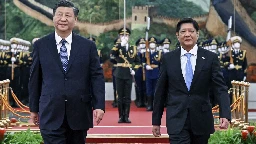
Cross-post da: https://scribe.disroot.org/post/1860385
Philippine President Ferdinand Marcos Jr. offered on Friday to remove a U.S. missile system from the Philippines if China halts what he called its “aggressive and coercive behavior” in the disputed South China Sea.
The U.S. Army installed the Typhon mid-range missile system in the northern Philippines in April last year to support what the longtime treaty allies described as training for joint combat readiness.
China has repeatedly demanded that the Philippines remove the missile system, saying it was “inciting geopolitical confrontation and an arms race.”
Asked by reporters about China’s criticism of the missile system, Marcos said he did not understand the Chinese position because the Philippines does not comment on China’s missile systems which “are a thousand times more powerful than what we have.”
“Let’s make a deal with China: Stop claiming our territory, stop harassing our fishermen and let them have a living, stop ramming our boats, stop water cannoning our people, stop firing lasers at us and stop your aggressive and coercive behavior, and we’ll return the typhoon missiles,” Marcos told reporters in central Cebu province.
...
Philippine president offers a deal to China: Stop sea aggression and I’ll return missiles to US
Philippine President Ferdinand Marcos Jr. has offered to remove a U.S. missile system from the Philippines if China halts what he called its “aggressive and coercive behavior” in the disputed South China Sea.
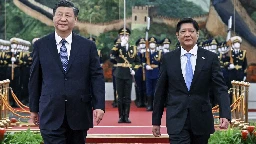
Philippine President Ferdinand Marcos Jr. offered on Friday to remove a U.S. missile system from the Philippines if China halts what he called its “aggressive and coercive behavior” in the disputed South China Sea.
The U.S. Army installed the Typhon mid-range missile system in the northern Philippines in April last year to support what the longtime treaty allies described as training for joint combat readiness.
China has repeatedly demanded that the Philippines remove the missile system, saying it was “inciting geopolitical confrontation and an arms race.”
Asked by reporters about China’s criticism of the missile system, Marcos said he did not understand the Chinese position because the Philippines does not comment on China’s missile systems which “are a thousand times more powerful than what we have.”
“Let’s make a deal with China: Stop claiming our territory, stop harassing our fishermen and let them have a living, stop ramming our boats, stop water cannoning our people, stop firing lasers at us and stop your aggressive and coercive behavior, and we’ll return the typhoon missiles,” Marcos told reporters in central Cebu province.
...
China: Video emerges of explosion at market after visit by Xi Jinping
An explosion at a food market visited just days earlier by the Chinese president has resulted in an unknown number of casualties.

Cross posted from: https://scribe.disroot.org/post/1860333
An explosion at a Chinese food market, visited just days earlier by President Xi Jinping and during Lunar New Year celebrations, has caused an unknown number of casualties.
Details about the incident in the city of Shenyang in China's north-east Liaoning province on Sunday remain scarce, with authorities apparently suppressing any reporting.
Chinese social media has been scrubbed of any mention.
...
The number of injuries and possible deaths remains unknown as does the cause of the explosion.
...
Pan Wang, an associate professor in Chinese and Asian Studies at the University of New South Wales, said the suppression of information about the incident may not be permanent.
...
Dr Wang said it was unsurprising that news of the weekend's incident was being censored regardless of whether the explosion was an accident or deliberate.
"The timing so soon after Xi's visit and during the New Year celebrations is key," she said.
"It's a big significant festival for all Chinese.
"It's supposed to be a harmonious time, stable, with food and happiness."
However, she said the authorities would be better off being honest and timely with the public about what happened.
"In the absence of information, misinformation and disinformation can be circulated which will likely run counter to the authorities' intention to control public opinion," she said.
...
China: Video emerges of explosion at market after visit by Xi Jinping
An explosion at a food market visited just days earlier by the Chinese president has resulted in an unknown number of casualties.

An explosion at a Chinese food market, visited just days earlier by President Xi Jinping and during Lunar New Year celebrations, has caused an unknown number of casualties.
Details about the incident in the city of Shenyang in China's north-east Liaoning province on Sunday remain scarce, with authorities apparently suppressing any reporting.
Chinese social media has been scrubbed of any mention.
...
The number of injuries and possible deaths remains unknown as does the cause of the explosion.
...
Pan Wang, an associate professor in Chinese and Asian Studies at the University of New South Wales, said the suppression of information about the incident may not be permanent.
...
Dr Wang said it was unsurprising that news of the weekend's incident was being censored regardless of whether the explosion was an accident or deliberate.
"The timing so soon after Xi's visit and during the New Year celebrations is key," she said.
"It's a big significant festival for all Chinese.
"It's supposed to be a harmonious time, stable, with food and happiness."
However, she said the authorities would be better off being honest and timely with the public about what happened.
"In the absence of information, misinformation and disinformation can be circulated which will likely run counter to the authorities' intention to control public opinion," she said.
...
For the third consecutive year, China’s population has declined. To revive the country’s birth rate, authorities are relying on incentive-based policies as well as intrusive campaigns targeting women.
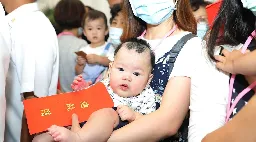
Cross posted from: https://scribe.disroot.org/post/1860279
For the third consecutive year, China’s population has declined. To revive the country’s birth rate, authorities are relying on incentive-based policies as well as intrusive campaigns targeting women.
"Are you pregnant?” “When was your last period?” These are the types of intrusive questions Chinese women of childbearing age might face [...] Dozens of Chinese women reported receiving intrusive phone calls from government officials or family planning workers. Their goal? To encourage couples to have one, two, or ideally three children. “These calls aim to exert strong social pressure on women,” explained Isabelle Attané, a sinologist and demographer at the French National Institute for Demographic Studies.
...
Amid demographic decline, the Chinese government appears willing to infringe on women’s rights. Access to abortion—currently permitted at all stages of pregnancy—has become a hot topic of debate in government circles. According to Isabelle Attané, contraception is also now under scrutiny: “During the one-child policy, all married couples had access to free contraception, but today the government may roll back those measures.”
...
Despite its efforts, China has struggled to escape the demographic crisis it has plunged itself into. In 1979, the People’s Republic of China implemented the one-child policy. Economic penalties facilitated access to contraception, and even forced abortions allowed the government to limit births for nearly four decades.
...
Starting a family: A costly investment
The government adjusted its natality policies again in 2021 when the second amendment to the Population and Family Planning Law was adopted. Couples can now have up to three children and receive public support. The law includes extended maternity leave, expanded childcare services in workplaces, and increased social benefits for parents.
...
These measures are especially welcome in a country where starting a family is a significant financial burden. A recent study published in Yangzi Wanbao found that China is the second-most expensive country in the world to raise a child, costing around $73,000—six times the per capita GDP.
...
As an addition, the South Korea privacy watchdog is also to ask DeepSeek about personal information use (after Italy and Ireland announced the same some days ago).
South Korea's information privacy watchdog plans to ask DeepSeek about how the personal information of users is managed, an agency official said on Friday.
The country's Personal Information Protection Commission will be sending a written request for information to the operators of the Chinese artificial intelligence model soon, the official said.
[Edit typo.]
There's a related report focusing on the Serbian prime minister's resignation:
Serbia’s PM Milos Vucevic resigns amid Chinese contractor controversy -- [unpaywalled link]
Vucevic was mayor of Novi Sad before becoming prime minister in elections last April. His successor as mayor also resigned on Tuesday. Protesters claim the Chinese consortium responsible for renovating parts of Novi Sad station had bypassed safety regulations with the assistance of corrupt officials.
...
There is a growing perception that the president [Vucic, who is now about to decide whether to form a majority government or hold a snap parliamentary election] is trying to quash democratic freedoms in Serbia and turn the country back towards Moscow, despite Belgrade’s formal efforts to join the European Union. Serbia is a candidate to join the bloc but must first normalise relations with its neighbour Kosovo, which broke away from Serbia after a Nato intervention in 1999 that brought an end to Slobodan Milosevic’s brutal crackdown on ethnic Albanian separatists.
Yeah, I get your point, but there is also 'good' cotton. Hard to find and evaluate for us consumers, though. We need transparent supply chains I would say.
That's a real issue:
Censorship and isolation as China bans thousands of mobile apps
... ironically, TikTok, along with other globally popular social media platforms, is also unavailable in China. Conversely, ByteDance tailor-made a local version, Douyin, for Chinese users, to comply with the country’s stringent censorship rules. In fact, TikTok is not an isolated case. Alibaba’s popular messaging platform, Ding Talk, is also unavailable in China, and its local version is called Ding Ding.
Yeah, I would say we really need Open Source, privacy-respecting apps everywhere. We don't need a Great Firewall. Nowhere.
we don’t see similar articles for OpenAI and other US-based AI tools.
I don't know what kind of media you consume, but I read such articles all the time. And as I said already here, there is still a difference as surveillance and censorship is much harsher in China than anywhere else.
(It's amazing. I'm really new on Lemmy, but it seems whataboutery is a thing here ...)
There would be a lot of reasons to differentiate between democracies and autocracies, but I agree that it's not surprising. This is just the next step of a totally over-hyped technology imo. Here everyone gets excited about a performance while no one even knows what the training data is, but people are excited by these PR announcements.
‘So what?’: Privacy warnings about DeepSeek fall on deaf ears
Privacy activists are warning about the invasive nature of DeepSeek, which collects a trove of personal user information that could be handed over to the Chinese government
People, however, just don’t care.
Luke de Pulford, co-founder of the Inter-Parliamentary Alliance on China (IPAC), shared screenshots from the Chinese AI chatbot’s privacy policy, which stated data it collects is stored in “secure servers located in the People’s Republic of China.”
...
“Just fyi, @deepseek_ai collects your IP, keystroke patterns, device info, etc etc, and stores it in China, where all that data is vulnerable to arbitrary requisition from the [Chinese] State,” said de Pulford, leader of IPAC, a global group of lawmakers who seek to hold China accountable for democratic abuses.
“Anticipating tedious whataboutery: the difference between this and free-world social media apps is that you can enforce your data rights in rule of law countries. This is not the case in China,” said de Pulford. >
‘So what?’: Privacy warnings about DeepSeek fall on deaf ears
Privacy activists are warning about the invasive nature of DeepSeek, which collects a trove of personal user information that could be handed over to the Chinese government
People, however, just don’t care.
Luke de Pulford, co-founder of the Inter-Parliamentary Alliance on China (IPAC), shared screenshots from the Chinese AI chatbot’s privacy policy, which stated data it collects is stored in “secure servers located in the People’s Republic of China.”
...
“Just fyi, @deepseek_ai collects your IP, keystroke patterns, device info, etc etc, and stores it in China, where all that data is vulnerable to arbitrary requisition from the [Chinese] State,” said de Pulford, leader of IPAC, a global group of lawmakers who seek to hold China accountable for democratic abuses.
“Anticipating tedious whataboutery: the difference between this and free-world social media apps is that you can enforce your data rights in rule of law countries. This is not the case in China,” said de Pulford. >
What has your comment to do with the article?
And? Is this a reason to send your data to China or anywhere else?
The guys at HF (and many others) appear to have a different understanding of Open Source.
As the Open Source AI definition says, among others:
Data Information: Sufficiently detailed information about the data used to train the system so that a skilled person can build a substantially equivalent system. Data Information shall be made available under OSI-approved terms.
- In particular, this must include: (1) the complete description of all data used for training, including (if used) of unshareable data, disclosing the provenance of the data, its scope and characteristics, how the data was obtained and selected, the labeling procedures, and data processing and filtering methodologies; (2) a listing of all publicly available training data and where to obtain it; and (3) a listing of all training data obtainable from third parties and where to obtain it, including for fee.
Code: The complete source code used to train and run the system. The Code shall represent the full specification of how the data was processed and filtered, and how the training was done. Code shall be made available under OSI-approved licenses.
- For example, if used, this must include code used for processing and filtering data, code used for training including arguments and settings used, validation and testing, supporting libraries like tokenizers and hyperparameters search code, inference code, and model architecture.
Parameters: The model parameters, such as weights or other configuration settings. Parameters shall be made available under OSI-approved terms.
- The licensing or other terms applied to these elements and to any combination thereof may contain conditions that require any modified version to be released under the same terms as the original.
These three components -data, code, parameter- shall be released under the same condition.
Clearly, however, there are concerns about censorship, democracy and security. One of the drivers of the Chinese AI industry has been access to extraordinary amounts of data, which is more difficult to get hold of in the West.
This is a very brief paragraph about real issues. The whole article basically says that "China is better because it's cheaper," but it doesn't say exactly why it's cheaper. You'll find a lot of reliable information about slavery-like labour in China and the absence of any workers' rights. This BBC article ignores that completely.
Is Deepseek Open Source?
Hugging Face researchers are trying to build a more open version of DeepSeek’s AI ‘reasoning’ model
Hugging Face head of research Leandro von Werra and several company engineers have launched Open-R1, a project that seeks to build a duplicate of R1 and open source all of its components, including the data used to train it.
The engineers said they were compelled to act by DeepSeek’s “black box” release philosophy. Technically, R1 is “open” in that the model is permissively licensed, which means it can be deployed largely without restrictions. However, R1 isn’t “open source” by the widely accepted definition because some of the tools used to build it are shrouded in mystery. Like many high-flying AI companies, DeepSeek is loathe to reveal its secret sauce.